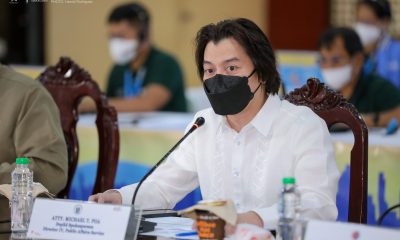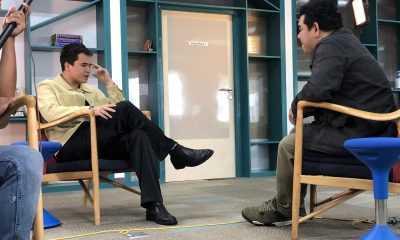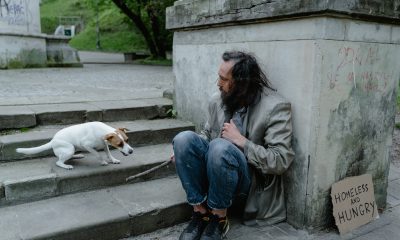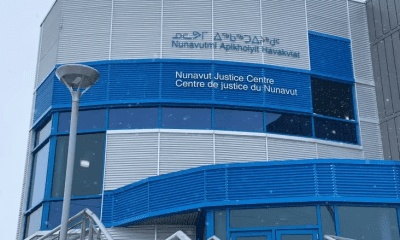Canada News
Reality, not religion, is the reason people need MAiD-free health care
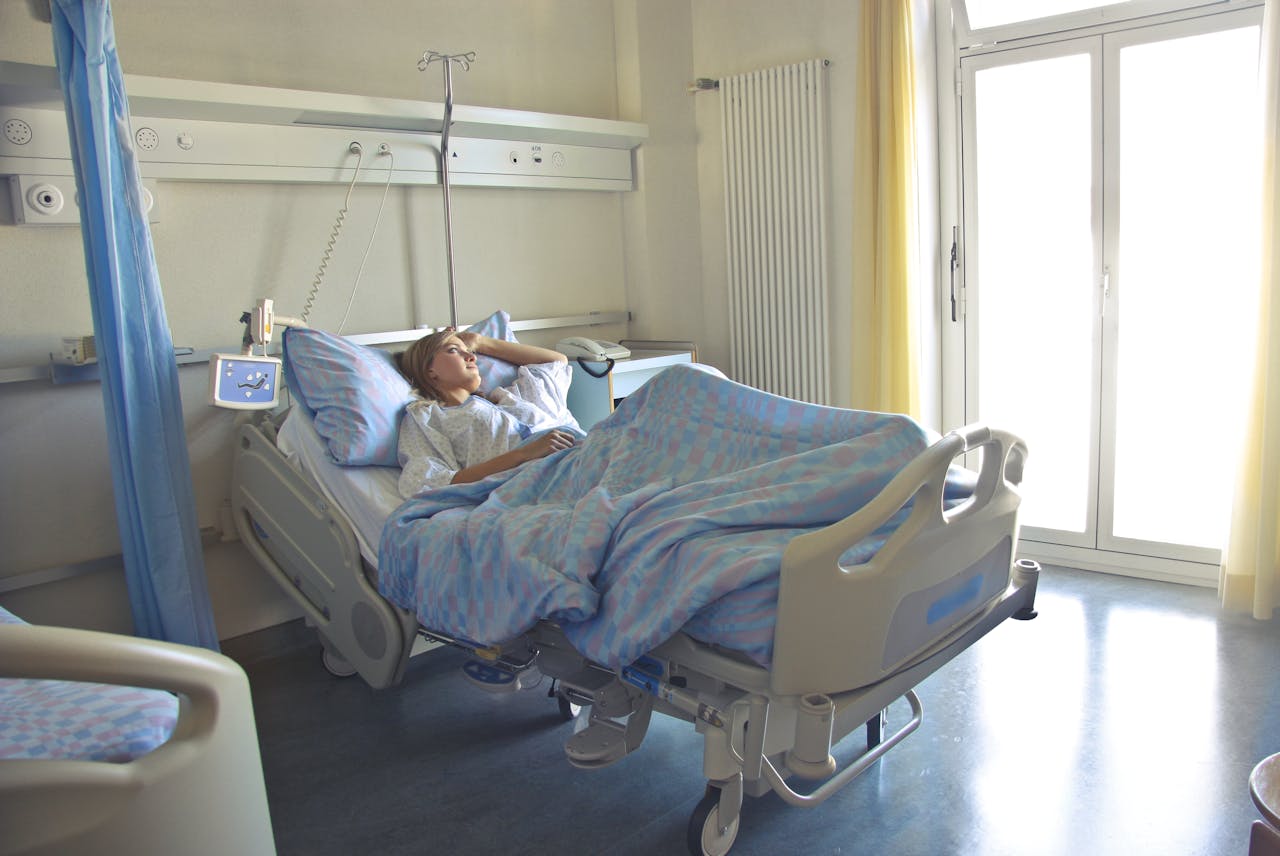
Some health-care providers see MAiD-free spaces as working environments that allow them to respect their conscience and adhere to their professional understanding of doing no harm. (Pexels Photo)
“On the question of religious hospitals, despite being a lesbian couple, Patricia and I would tolerate life-size crucifixes in the treatment room if it meant being safe from MAiD.” ~ Catherine Frazee, professor emerita at the School of Disability Studies at Metropolitan University, former chief commissioner of the Ontario Human Rights Commission, and co-founder of Disability Filibuster.
Disabled people often talk about being made invisible. This feeling is particularly striking around issues that are specific to us like MAiD, medical assistance in dying. The lobbyists and proponents for Canada’s MAiD regime routinely mischaracterize or, more often, omit mention of disabled people or our reasons for opposition entirely.
Consistent with this, Jocelyn Downie and Daphne Gilbert ridiculed B.C. Health Minister Adrian Dix’s plan for a clinical space for MAiD to be created next to a MAiD-free hospital in Vancouver. In their recent Policy Options article, they call the planned connecting hallway a “corridor of sin” and accuse the minister of making a plan that is church-centred, not patient-centred.
Some health-care providers see MAiD-free spaces as working environments that allow them to respect their conscience and adhere to their professional understanding of doing no harm.
Disabled patients, however, have expressed different reasons for wanting MAiD-free health-care settings.
To start with, we should have the right to receive medical care in places and from people who do not contemplate or participate in killing disabled people as part of a care plan.
Who wants to look up at a doctor from a hospital bed and wonder if they have just deliberately ended the life of someone with a similar condition? Or to overhear conversations in hallways, waiting rooms, nursing stations or on the other side of a curtain, about how a lethal injection preserved a relative’s dignity before she – gasp – became incontinent, like me.
The toll of ableism
The only MAiD-free spaces left are in faith-based facilities. This is a result of vigorous lobbying by well-funded and privileged groups, and the abandonment of disabled people.
Quebec prevents the creation of MAiD-free spaces, something the Quebec Archbishop is fighting in court. A B.C. hospice that chose to remain MAiD-free had its funding cut by the provincial government.
Deep convictions and deep pockets are needed to fight the MAiD lobby.
Many disabled people can remember a time in their lives when they would or could have agreed to MAiD had it been suggested to them. The reason for this unfortunate common bond is ableism.
A brief and widely adopted definition of ableism Fiona Kumari Campbell explains it as “a network of beliefs, processes and practices that produces a particular kind of self and body…that is projected as perfect and species-typical, and therefore essential and fully human.”
As a result, disability “is cast as a diminished state of being human.” It is a short journey from believing disability makes you less human to thinking that it is better to be dead than disabled.
Ableism in Canada is structural, codified, and acts as the rebar in our economy, politics, and culture. It defines and designs access to resources, services, public space, education, housing, health and health care, employment, and fundamental human rights.
Ableism affects how others perceive and treat us and how we perceive ourselves and our experiences. In this way ableism informs how our suffering is interpreted, making causal links that are not supported by evidence.
Medical ableism is often presented as “common sense” instead of bias, University of Alberta professor Heidi Janz says. Part of what allows it to remain unexamined is it exists within a larger contested framework referred to as the medical model of disability. In this model, disability is defined as deficiency, tragedy, and the opposite of health. Suffering is assumed and, because disability is understood entirely as a problem with an individual’s body, knowledge, power, and authority are placed within the medical field.
The result of this is our entire humanity is compressed into our diagnoses. There is no examination of the inherent political oppression or the bias in treatment because the medical model assumes the inequity disabled people experience is a logical result of being disabled.
This also incidentally is one of the many reasons MAiD assessors are ill-equipped to identify social suffering and solutions.
Health-care professionals have a lot of power over disabled people. For many of us, a physician’s signature governs far more than our essential medical care. It determines most aspects of our lives: housing, access to transportation, income, education, recreation, mobility, and other equipment.
That signature is shaped by their perception of us, which is shaped by how well we align with their judgment of us as a “good patient.” In recent years, medicine has moved away from the use of the word compliant to describe whether patients follow medical advice. Now they talk about adherence. But whichever word they use, the power imbalance remains, and patients and family are hesitant to ask questions or raise concerns. As well, in most interactions, patients have just 11 seconds to speak before a physician interrupts them, research has shown.
Physicians conflate disability with suffering. Some bioethicists have likened disabled people to “happy slaves” for daring to suggest that disability is not a synonym for misery. Physicians consistently rate disabled people’s quality of life lower than disabled people themselves do. This is called the disability paradox.
The contagion of MAiD
MAiD contagion is already happening. I have been doing research with FAFIA as part of York University’s Creating Spaces project. I listened to stories of disabled women and non-binary people. In one focus group of six people, two had experienced suicidal ideation for the first time because of MAiD and the promotion around it, and in particular its expansion to disabled people who are not dying.
The deluge of emotionally charged MAiD coverage is driven primarily by stories crafted or at least aided by the public relations and lobby efforts by proponents. As part of its recent campaign, Dying with Dignity, a national organization that campaigns for the expansion and liberalization of MAiD, emailed supporters urging them to submit opinion pieces to media organizations and offered the help of its communications team.
The CEO of Dying with Dignity has met with senators and members of Parliament in official lobbying capacity 41 times in the last 12 months. The charity also employs lobbyists at Blackbird Communications.
In a public-relations war, money can create even more imbalance than it does in a courtroom.
But much of the media coverage of MAiD runs counter to the World Health Organization’s guidelines for responsible reporting on suicide. The WHO warns against spreading suicide contagion through prominent placement of stories about suicide, by normalizing it or presenting it as a constructive solution to problems, and by explicitly describing the method used.
Perhaps a lot of the coverage of MAiD ignores contagion protocols because MAiD is a euphemism for assisted suicide or euthanasia.
Chronically ill and disabled Canadians need a say in health-care reforms
Downie and Gilbert focus on St. Paul’s Hospital in Vancouver and offer an anonymous doctor’s fictional scenario of what they imagine a patient might experience while being transferred to another setting to access MAiD. They use the term “forced transfer.”
A former executive director of Dying with Dignity said in a 2019 statement of claim that it was her “creative-thinking” that is responsible for the “ground-breaking” term. The statement was part of an Ontario lawsuit in which the public-relations value of the term was highlighted, noting it has been adopted “nationally and internationally by academics, clinicians, lawyers, and others in the right to die movement.”
Patients are transferred every day to access care, equipment or expertise that is not available where they are.
And it is striking that the term “forced transfer” is selectively applied to MAiD and not, for example, patients forced to move to long-term care facilities not of their choosing, on threat of being billed $400/day by the government if they refuse.
Instead of fiction written by a physician imagining what a patient might feel, I have a real story about real events told by the person who really experienced them.
The deterioration of care
In 2009, before MAiD was legalized, I was living in North Vancouver. Since the onset of my rare neuromuscular disease several years prior I had been seen by an assortment of specialists at three different hospitals. Approximately two years of that time was spent in search of diagnosis for the multiple and worsening symptoms. At first, I thought I was just run down following a virus, but a turning point was when I had to be helped out of the community centre pool by a lifeguard because I couldn’t catch my breath a quarter of the way into my first lap. Over time, I transitioned from trail runner to using a cane, then walker and eventually a wheelchair. Simultaneously I transformed from being perceived as normal but sick to disabled and “unfixable” – and fat because of the corticosteroids.
No longer able to work and unable to access benefits due to eligibility criteria that declared me a dependent of the boyfriend I had been living with, my economic situation deteriorated.
Soon, my care changed, too. Nurses stopped complimenting me on my shoes, asking about my work, and telling me not to give up. The new answer to every question was a shrug and “you’re disabled.” It took three trips to two different hospitals and a tense standoff to finally be diagnosed and treated for deep-vein thrombosis and a pulmonary embolism following an intravenous immunoglobulin treatment (IVIG).
Meanwhile my condition created a smorgasbord of symptoms and managing one would sometimes worsen or create another. There were complications, “atypical presentations,” systemic infections, superbugs, and an ever-growing list of prescriptions sometimes accompanied by allergic reactions and serious side effects. I was a “high-cost health-care user.” The term is used to describe the five per cent of health-care users who are said to account for nearly two-thirds of health-care costs.
I sensed a growing defeatism among those providing me with care. But I was certain that the danger was at least partially a result of the health-care system’s siloed and almost exclusive focus on the latest acute crisis made worse by under-funding and embedded bias.
With each hospitalization, staff would do just enough to be able to send me home to die.
In between hospital stays, home-care aids and nurses would provide care.
One day I asked one of the visiting nurses if there wasn’t anyone anywhere who would put some effort into trying to prolong my life.
She said that she’d had some other patients like me (who had been given up on). Some had tried St. Paul’s and swore the care there was different. She told me it was probably my last hope.
She was right. St. Paul’s did save my life when others had given up and left me to die and by the time I finally found a way to get there, I was dying.
Unfortunately, no place is free of ableism. St. Paul’s was not the first place someone in a health-care setting told me it would be better if I died sooner rather than later, but it was the first time I was asked to indicate my agreement by signing on the dotted line.
A hospital employee carrying a box of tissues and a clipboard came to my room. After closing the door, she put her hand on mine and expressed her “sincere sadness” for my situation. She raised that my above-mentioned boyfriend had announced he was leaving me shortly after I had been admitted and this meant I would be without money or housing.
She told me I had been through so much and deserved to rest. The rest she was offering me was permanent. She urged me to sign a do-not-resuscitate order.
I declined.
We went back and forth as her veneer of concern peeled away. She was angry. She said she could not understand why I would want to go on living. I told her to get out of my room. I can still see the disgust in her eyes. I hope she can still see the rage in mine.
When the specialist came into my room, I grabbed his hand and told him that I wanted a chance to live. I asked him to please do more than patch me up just enough to make it out of the parking lot. The next day he said he would do everything he could to help me if I agreed to do whatever he told me to do.
We shook on it.
I was at St. Paul’s for nine months. It is too long of a story to share all the good that happened – and all that was lost or undone by the policies of the rehabilitation hospital I was sent to afterward. Not to mention a subsequent denial of treatment.
But 15 years later, I am still alive.
Throughout my long stay at St. Paul’s, there was an Indigenous woman down the hall who had been there longer than me. She had decorated her walls with art and blankets from home. There was a man who was a patient for many months. He had been living outside and had developed a skin infection. His whole body was bandaged.
These were people I had not seen in other hospitals. They were marginalized people who needed more time and more care due to the lack of supports available to them in the community and due to the social and political determinants of health that caused or contributed to their health crises. At St. Paul’s, no one ever asked me if I was Catholic. I never saw a priest or nun. No one brought up religion.
At a follow-up appointment with the specialist I showed him a photo of me on a sailboat. He smiled and then his expression became more serious. He explained that a medication I had been prescribed for years had been, in essence, poisoning me. “You were dying when I met you,” he said. “I know,” I said. I thanked him for not giving up on me.
I knew from the nurses that he had fought to keep me in hospital as long as he did.
He ran me through a strength test, in which I raised my arms. He pushed down on them and was surprised to meet any real resistance. He stepped back and shook his head, marvelling. The real change, though, was number of medications I required: it was declining, not increasing.
Many, if not most, disabled people would prefer the additional option of secular MAiD-free spaces. But Catherine Frazee, whose quote starts this article, has articulated the view of a great many disabled people who fervently want safety from MAiD.
Affirming support for the belief of “better dead than disabled” in health care is dangerous and cruel. Canada has made disabled people a killable class, and hardly anyone has considered the impact this would have on us. This country must maintain MAiD-free health-care spaces.
This article first appeared on Policy Options and is republished here under a Creative Commons license.






